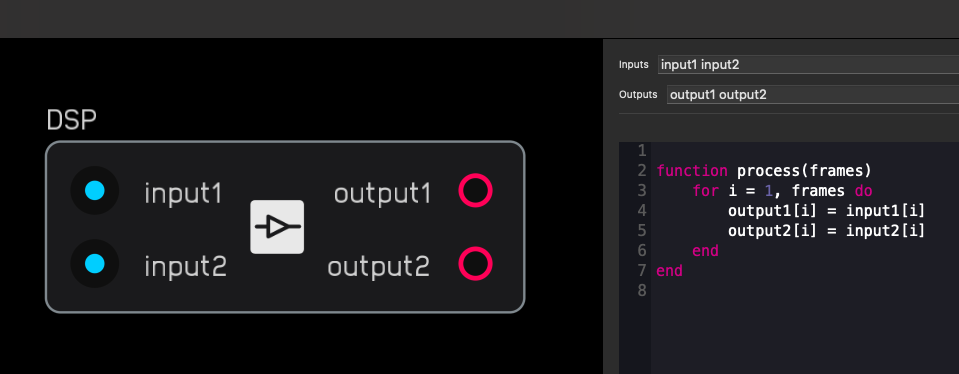Love the power of modular but want to go even deeper? Audulus, the modular platform we’ve already been eyeing, now lets you use easy-to-understand Lua script code to add your own custom signal processors with its new DSP node.
Meet the new DSP node. It really is an easier entry point to DIY sound code than you’d typically get with something like C/C++. As developer Taylor Holliday tells us, there’s none of the boilerplate busywork you have to do just to start your project. And there are guardrails on it that prevent you from crashing your code accidentally.
Plus, it’s pretty nice that you get to run this natively on iOS – so you can code on an iPad, even. (Time to whip out that Bluetooth keyboard, maybe.)

“Custom audio effects, oscillators, modulators, submodule tools…” – yep, all that. There’s a really easy-to-follow guide, which will get experienced coders up and running right away and show even some novice / dangerously-incompetent (hi there) coders to understand this is surprisingly straightforward:
https://github.com/markalanboyd/Audulus-DSP (a self-described “user-driven project”)
And even complete non-coders can already find some goodies. Mark Alan Boyd the Audulus evangelist has already populated the GitHub repository with some useful template examples to start from / mess up. And there’s one from the Audulus feature list – a proper random seed so you can add randomness anywhere in your patch. That’s for true random numbers when you open a patch, with a new seed each time. You can just copy this into Audulus 4.1 and have it going right away.
https://github.com/markalanboyd/Audulus-DSP
The other reason it’s nice to see this is that we’ve long had similar flexibility with shaders on the visual/graphics side – where you can copy and paste cute examples without necessarily needing to be full-fledged programmers or set up the whole environment. It makes sense for sound, too.
Audulus has added some other features for their Lua coding experience in general, including more efficient tabbing and parentheses handling.
4.1 is a free download and existing users can just update to get it. If you’re new to Audulus and want to try editing patches, that’s a US$29.99 In-App Purchase.
One purchase nets you both macOS and iOS versions.
On Mac and iPad:
Audulus 4 on the Apple App Store
Previously: